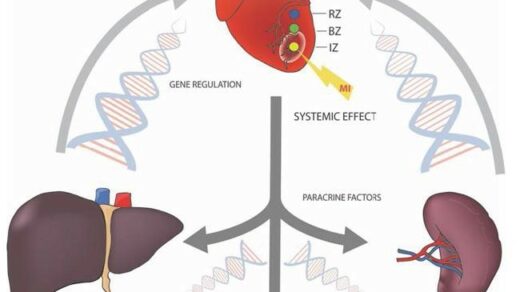Ataxia telangiectasia and Rad3 (ATR) inhibition was targeted in an attempt to overcome temozolomide (TMZ) resistance in a subset of MGMT-negative and MMR-proficient cancer cell lines.

Temozolomide (TMZ) is a powerful chemotherapeutic drug that is currently approved to treat brain cancer (glioblastoma, GBM) and advanced melanoma. TMZ has a remarkably precise molecular target—the O-6 position of guanine—and is capable of inducing DNA damage. This prodrug can elicit many responses in a variety of cancer cells, including cell death, autophagy and senescence. At present, there are over 300 clinical trials evaluating the efficacy of TMZ in combination with other agents in solid tumors. At least 25% of these trials include testing the efficacy of TMZ in breast, pancreatic, colorectal and lung cancers.
“Low MGMT levels in other types of cancer have resulted in the consideration of TMZ as a potential therapy beyond glioblastoma and melanoma [37].”
However, not all patients benefit from TMZ treatment, despite presenting with biomarkers known to predict TMZ treatment response, such as low O-6-Methylguanine-DNA methyltransferase (MGMTlow) and proficient DNA mismatch repair (MMRproficient). Researchers have found that the clinical efficacy of TMZ is hindered by inherent and acquired mechanisms of resistance in some patients.
In 2021, a team of researchers from Leidos Biomedical Research Inc. (the current operations and technical support contractor for the Frederick National Laboratory for Cancer Research) and the National Institutes of Health’s National Cancer Institute conducted a new study on TMZ. In an attempt to overcome TMZ resistance, they examined the in vitro and in vivo anti-tumor efficacy of TMZ when combined with ataxia telangiectasia and Rad3 related inhibitors (ATRi) and a wide variety of other inhibitor drugs. Their paper was published as the cover of Oncotarget’s Volume 12, Issue 21, and entitled, “ATR inhibition reverses the resistance of homologous recombination deficient MGMTlow/MMRproficient cancer cells to temozolomide.”
The Study
In this study, the researchers used a panel of 12 patient-derived cell lines (PDCs) and 27 human cancer cell lines from various tissue origins in the NCI60. To start, all 39 cell lines were treated with TMZ. Of these models, 27 were resistant to TMZ. Here, the researchers demonstrated that low/inhibited MGMT and functional MMR are necessary, but not sufficient, in order to confer TMZ sensitivity.
Next, the researchers combined TMZ with ATR inhibition. The addition of ATR inhibition sensitized over half of the TMZ-resistant models (14 out of 27), including bladder cancer cell line BL0479-72. ATR inhibition also increased the sensitivity of nine moderately sensitive models.
“However, ATR inhibition did not sensitize 13 TMZ-resistant lines or increase the sensitivity of 3 TMZ-sensitive lines, even upon MGMT inhibition.”
In an effort to illuminate the additional factors that must be involved in TMZ sensitivity among MGMTlow/negative and MMRproficient models, the researchers compared TMZ-sensitive and TMZ-insensitive (BL0479-72) bladder cancer cell lines treated with TMZ + ATRi and TMZ + an ataxia telangiectasia mutated inhibitor (ATMi). They found that combining TMZ with an ATRi sustains growth inhibition and toxicity better than TMZ + ATMi. The researchers conducted further analyses of the cell lines to find that low REV3L mRNA expression is associated with sensitivity to the combination of TMZ + ATRi.
“Furthermore, low REV3L mRNA expression correlated with sensitivity to the TMZ and ATRi combination in vitro and in vivo. This suggests that HR [homologous recombination] defects and low REV3L levels could be useful selection criteria for enhanced clinical efficacy of an ATRi plus TMZ combination.”
Conclusion
In total, the team examined the efficacy of TMZ combined with ATR inhibitors, checkpoint kinase 1 (CHK1) inhibitors, an ATM inhibitor, an MGMT inhibitor, a pan-CDK inhibitor, a RAD51 gene inhibitor, and a DNA-dependent protein kinase (DNA-PK) inhibitor. ATR inhibition was a viable therapeutic target in combination with TMZ—promoting sustained DNA damage, growth inhibition and cell death in a subset of MGMT low/negative and MMR proficient models. They also found that, when compared to resistant cell lines, lower levels of REV3L mRNA expression were found in cell lines that were sensitive to ATRi and TMZ + ATRi.
“This suggests that ATR is a good target in the context of TMZ treatment for tumor types beyond glioblastoma and advanced melanoma with specific molecular determinants that can be used to identify patients that might benefit from this combination.”
Click here to read the full priority research paper, published by Oncotarget.
YOU MAY ALSO LIKE: Oncotarget Videos on LabTube
—
Oncotarget is a unique platform designed to house scientific studies in a journal format that is available for anyone to read—without a paywall making access more difficult. This means information that has the potential to benefit our societies from the inside out can be shared with friends, neighbors, colleagues, and other researchers, far and wide.
For media inquiries, please contact media@impactjournals.com.



